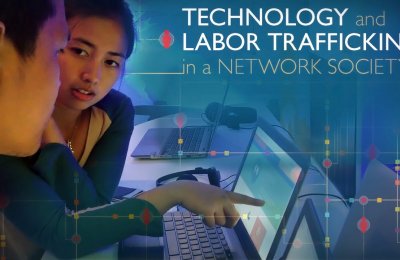Cell phones and social media may often seem like a nuisances or time-burners, but a survey by the USC Annenberg Center for the Digital Future and Bovitz Inc., shows that large percentages of Americans who use online technology do indeed see its benefits, including doing more in less time, the value of working from anywhere and the sheer excitement of trying new technology (view the stats).
“Every development in communication from the printing press to the personal computer has produced new social effects,” said Jeffrey I. Cole, director of the Center for the Digital Future. “Now, as interactive mobile technology increasingly becomes a 24/7 experience, we find users recognize they are reaping new types of benefits from technology – along with negative effects at home and work.”
The survey, which explores the views of Internet users ages 13 to 91, found Americans see fundamental benefits in using online technology:
- Seventy-four percent of respondents said they are able to do more in less time with their technology.
- Seventy-two percent are excited to try new technology.
- Fifty-five percent said they would rather work remotely than in the office.
- Forty-five percent said they have more time for their family and friends because technology enables them to do work from anywhere.
The darker side of technology: stress, struggles to learn, personal-work conflicts
While most Americans benefit from online technology, smaller but notable percentages of users say those services exact a personal toll in the form of increased stress, struggles to learn new technology, and conflicts in separating careers from personal lives.
The negatives found in the survey include:
- Thirty-one percent said technology has made it harder to separate their work and personal lives.
- Twenty-six percent said they are stressed because technology has made them always on call for work.
- Twenty-five percent report they struggle to figure out new technology.
- Twenty-one percent said being accessible through a mobile device has made their lives more stressful.
- Twenty percent said they frequently resent having to work at home because of what technology makes possible.
- Sixteen percent said their personal lives have suffered because of technology in their work lives.
Effects of technology: Millennials vs. non-Millennials
As in other research released recently by the Center and Bovitz, the current study found a “Millennial Rift” – a gap between the views of Millennials and non-Millennials – on several issues involving the consequences of using technology.
Among the differences reported in the positive effects of technology:
• Eighty-five percent of Millennials said they are excited to try new technology, compared to sixty-four percent of non-Millennials.
• Eighty-four percent of Millennials said they are able to do more in less time with their technology, compared to sixty-eight percent of non-Millennials
• Fifty-two percent of Millennials said they have more time for my family and friends because technology enables them to do work from anywhere, compared to forty-two percent of non-Millennials.
And larger percentages of Millennials than non-Millennials report personal problems that result from using technology.
• Twenty-five percent of Millennials who are employed said they frequently resent having to do work at home because of what technology makes possible, compared to 18 percent of non-Millennials
• Nineteen percent of Millennials who are employed said their personal lives have suffered because of the technology in their work lives, compared to 15 percent of non-Millennials
• Twenty-five percent of Millennials said being accessible through a mobile device has made their lives more stressful, compared to 20 percent of non-Millennials
“Millennials may embrace technology more enthusiastically than non-Millennials, but larger percentages of them also recognize that using technology comes with consequences,” said Greg Bovitz, president of Bovitz Inc and a senior fellow at the Center for the Digital Future.
Survey background
Findings on the benefits and costs of technology were developed from the results of the Topical Survey, a new supplement to the Center’s annual research study that covers issues such as privacy, social media use, use of technology at school, stress and technology, and norms regarding the presence of technology in social settings. The Topical Survey has a margin of error of +/- 3.1%.
The Center for the Digital Future
Since 2000, the Center for the Digital Future (digitalcenter.org) has examined the behavior and views of a national sample of Internet users and non-users in major annual surveys of the impact of the Internet on America. The center also created and organizes the World Internet Project, which includes similar research with 37 international partners.
Bovitz Inc.
Bovitz Inc (bovitzinc.com) is a design-driven research and strategy firm that helps organizations uncover opportunity and drive innovation.
Related:









